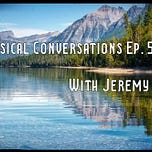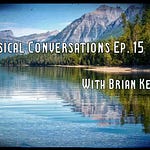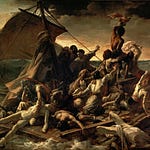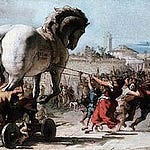Cool things that Jeremy has done related to our conversation:
Twitter: @jeremycarl4
Website: https://www.jeremycarl.com/
He has a new book on anti-white racism that is coming out soon! Keep an eye out for it.
Articles and Talks:
Open Borders and the Refugee Crisis under the Biden Administration (talk at the Danube Institute)
Christian Nationalism or Godless Nationalism?
Sampling of Podcast appearances:
"Settlers vs. Immigrants” Episode 67The questions that I sent Jeremy prior to the conversation:
1. You were a visiting fellow at the Danube Institute in Hungary for five weeks last year and from what I understand, you are just finishing up another visit to Budapest. To start with, what is the Danube Institute What were your goals for your most recent visit? What lessons have you learned?
2. Victor Orban has been the Prime Minister of Hungary since 2010 (he also was from 1998-2002). Do you have any sense of what the social / political situation was like in Hungary before his first victory? I ask in part, out of curiosity to see how applicable his approach and policies are to the United States; is there enough relevant similarity between our polities that we can or should attempt to imitate his approach? What is the most impressive of his accomplishments?
3. During the Trump administration, you were the U.S. Deputy Assistant Secretary of the Interior. From what little I know about this department, you would have worked on policy related to our natural resources and other similar concerns. In the mainstream media, it seems like only the Left cares about the environment—but this isn’t true! Could you say a little bit about what a RW or conservative approach to the environment / energy looks like?
4. You have a relatively recent essay in Arthur Milikh’s outstanding new volume, Up From Conservatism, called “The Nuclear Option: Transforming America’s Failed Immigration Policy.” There, you note that “America will not survive in any meaningful sense if we do not get control of our border and develop a will for national life and a unified American identity.” So, the stakes are very high for getting this right! You outline a number of concrete policy proposals; if Trump or another serious candidate is able to win in 2024, what is the lowest hanging fruit that he should attend to on day one?
5. Finally, you recently wrote an essay for American Mind on Christian nationalism. You argue that, in some sense, Christian nationalism has been tried in the United States, insofar as the Bible is cited more than Enlightenment figures during the founding period and you note as well that 9 out of the 13 original colonies had state churches (in addition to other convincing evidence). Do I understand your bold question at the end of the article correctly: that in order for Christian practice to remain a possibility—that is to exist at all—in the United States, some of the claims of Christian nationalism need to be embraced. Can you say more about what you mean?
Previous Classical Conversations:
Space Age Maximalist on engineers as aristocrats of the future, technological optimism, and how to merge scientific and humanistic thinking.
William Wheelwright on agriculture preceding culture, a vision for a new school, and Homer’s Iliad.
Phocaean Dionsyius on Aristocratical Christianity (our second conversation on this)
David Azerrad on the American founding, a diagnostic account of the contemporary situation, and thoughts about how to move forward.












